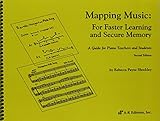http://www.amazon.com/Mapping-Music-Learning-Teachers-Studen...
which she has found very helpful.
As for mathematics, the subject I teach now, I have always cherished visual representations of mathematical concepts, for example those found in W. W. Sawyer's book Vision in Elementary Mathematics
http://www.amazon.com/Vision-Elementary-Mathematics-W-Sawyer...
http://www.marco-learningsystems.com/pages/sawyer/Vision_in_...
But other mathematicians who taught higher mathematics, for example Serge Lang, recommended memorizing some patterns of multiplying polynomials by oral recitation, just like reciting a poem.
http://www.amazon.com/Basic-Mathematics-Serge-Lang/dp/038796...
The acclaimed books on Calculus by Michael Spivak
http://www.amazon.com/Calculus-4th-Michael-Spivak/dp/0914098...
and Tom Apostol
http://www.amazon.com/Calculus-Vol-One-Variable-Introduction...
are acclaimed in large part because they use both well-chosen diagrams and meticulously rewritten words to deepen a student's acquaintance with calculus, related elementary calculus concepts to the more advanced concepts of real analysis.
Chinese-language textbooks about elementary mathematics for advanced learners, of which I have many at home, take care to introduce multiple representations of all mathematical concepts. The brilliant book Knowing and Teaching Elementary Mathematics: Teachers' Understanding of Fundamental Mathematics in China and the United States by Liping Ma
http://www.amazon.com/Knowing-Teaching-Elementary-Mathematic...
demonstrates with cogent examples just what a "profound understanding of fundamental mathematics" means, and how few American teachers have that understanding.
http://www.aft.org/pdfs/americaneducator/fall1999/amed1.pdf
http://www.ams.org/notices/199908/rev-howe.pdf
Elementary school teachers having a poor grasp of mathematics and thus not helping their pupils prepare for more advanced study of mathematics continues to be an ongoing problem in the United States.
http://www.ams.org/notices/200502/fea-kenschaft.pdf
In light of recent HN threads about Khan Academy,
http://news.ycombinator.com/item?id=2348476
http://news.ycombinator.com/item?id=2350430
I wonder what Khan Academy users who also have read the submitted blog post by Cal Newport think about how well students using Khan Academy as a learning tool can follow Newport's advice to gain insight into a subject. Is Khan Academy enough, or does it need to be supplemented with something else?


Any competent music teacher (I write as the husband of a piano teacher) can perform music with musical expression, and thus show students examples of the beauty of music. But the very best music teachers are also intimately familiar with all the isolated subskills that build into understanding a piece of music, and controlling the performer's muscle movements, and responding to the audience in a live setting to build a coherent, musically expressive performance. My wife teaches skills such as "music mapping,"
http://www.amazon.com/Mapping-Music-Learning-Teachers-Studen...
proper hand position,
http://www.amazon.com/Playing-Less-Hurt-Prevention-Musicians...
and how to tie those and many other skills together
http://www.amazon.com/Art-Piano-Playing-Heinrich-Neuhaus/dp/...
as part of a comprehensive process of teaching making music.
The basic problem with mathematics education at the elementary school level in the United States (see my previous reply to this thread
http://news.ycombinator.com/item?id=4034248
generally commenting on the submitted article) is that elementary school mathematics teachers can do NONE of the comparable things with mathematics that a good music teacher can do with music. They cannot isolate and focus on useful techniques, they cannot put on an example performance of solving an interesting, challenging problem, and they cannot make connections between their (poor) understanding of the problems found in elementary mathematics and their students' (often better, but different) understanding of the same problems. In the United States, people mostly seek music instruction for young learners from the private enterprise system. My wife gains most of her new clients, who are crammed into her busy teaching schedule as previous clients graduate from secondary school and go off to university, from friends of current clients who are happy with her work. By contrast, an elementary school teacher in a typical government-run school in the United States teaches on a take-it-or-leave-it basis, with attendance being compulsory in default of a government-approved alternative, and funding guaranteed to the school, and thus employment guaranteed to the teacher, whether the learners learn mathematics or not. Systemic change is necessary to get mathematics taught as music is taught to elementary-age pupils in the United States.
For an eye-opening look at how elementary mathematics teachers could be prepared, and how that would help learners, see Knowing and Teaching Elementary Mathematics: Teachers' Understanding of Fundamental Mathematics in China and the United States by Liping Ma.
http://www.amazon.com/Knowing-Teaching-Elementary-Mathematic...
That book is a very enjoyable--but rather shocking--read, full of information about how to teach mathematics for "Profound Understanding of Fundamental Mathematics."